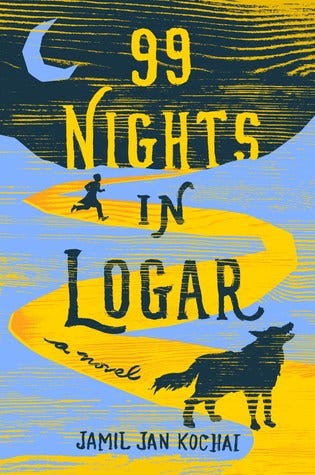99 Nights in Logar by Jamil Jan Kochai
The tidal wave of American interest in Afghanistan unleashed in 2001 brought with it thousands of books, most of which, to be honest were quite similar to one another. In line with U.S. prerogatives at the time, these works tended to look Afghanistan from the standpoint of political history, security, or, at most, human rights. Even fiction novels like The Kite Runner tended to fit into these categories. I have to say that very few of these books about Afghanistan actually made it sound like a place that you would ever want to visit. 99 Nights in Logar by Afghan-American author Jamil Jan Kochai is then unique for that reason alone: Its a slice of Afghan life that makes Afghanistan look like a genuinely charming place. The book takes place during the early years of the U.S. occupation, but unlike others, it treats the war itself as background that is generally ignored as much as possible by the protagonists. The real story are the ordinary lives, struggles, and desires of Afghans themselves: to work, get married, have parties, and be on good terms with their friends.
The plot revolves around an Afghan boy raised in the United States visiting his family village in Logar. The boy is happy to be back but has a difficult relationship with the family guard dog. After the dog bites off his finger and runs away, he goes off with his cousins on a Moby Dick-like adventure across the country to try and find him. Along the way they meet all types of people, including a few American soldiers and Taliban members, while telling each other stories about Afghans they have known over the years. The stories give some human perspective on the terrible events, both grand and small, that have taken place there since the 1980s.
The book is well written and its languorous narrative reminds me a bit of a Gabriel Garcia Marquez novel. There is one very small but important chapter near the end which is written entirely in Pashto, which I wasn’t able to read, and I’m sure will be a source of curiosity to many English speakers. I have to say it was refreshing to read a novel about Afghanistan, written by an Afghan, that makes Afghans the center of the story. It may be cliche to say, but when people have some say in how they are depicted you get to see bit more clearly the simple things that we all share.

